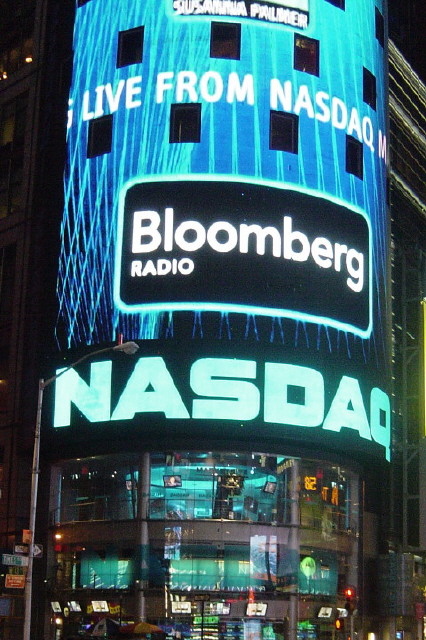
"Mass media, especially TV today, is so short-term that few in its audience grasp the lasting damage." (Image by Kowloonese.)
Going public on the stock exchange was traditionally a way for small businesses to raise capital to grow their companies. But what if the shortsightedness of the markets–and the media that attends them–is more injurious to a company than helpful? Facebook recently passed on going public in favor of private investors and the number of public American companies has shrunk from 7,500 to 4,100 since 1997. That means that the average person has less access to potential wealth-building opportunities while the monied few have more to gain. An excerpt from Jason Kirby’s “The Stock Market Is for Suckers” in McClean’s:
“In 2004, at the age of 92, the late Sir John Templeton, a pioneer in the world of mutual funds, issued a stark warning to investors. ‘The stock market is broken,’ he said in an interview. He went on to predict the housing bubble would spark the sort of terrible market crash we witnessed four years later. But Templeton saw a bigger problem than just the bubble then emerging. Stock markets are now dangerously short-sighted. ‘Mass media, especially TV today, is so short-term that few in its audience grasp the lasting damage and corrective impact which will continue to linger from the greatest financial crash in world history,’ he said. In the wake of that very crash, short-term thinking is as much a problem as ever before.
The stats behind investors’ amputated attention spans are astonishing, and reveal the damage caused to the wider economy. According to the New York Stock Exchange, in the 1960s the holding period for stocks was eight years. By 1990 it had fallen to two years and today the average stock is held for just nine months. As investors have shortened their time horizons, companies have been focused on each next quarter’s financial results at the expense of the next decade, say experts. Last spring, the U.S. Senate banking committee held hearings to examine the plague of short-term thinking in capital markets. Some astonishing revelations emerged. In a survey of 400 chief financial officers, 80 per cent said they’d cut research and development spending to goose short-term performance. To make matters worse, when companies do beat expectations, executives are lavished with huge paycheques and millions of stock options that dilute existing shareholders even further.”
Tags: Jason Kirby, Sir John Templeton
